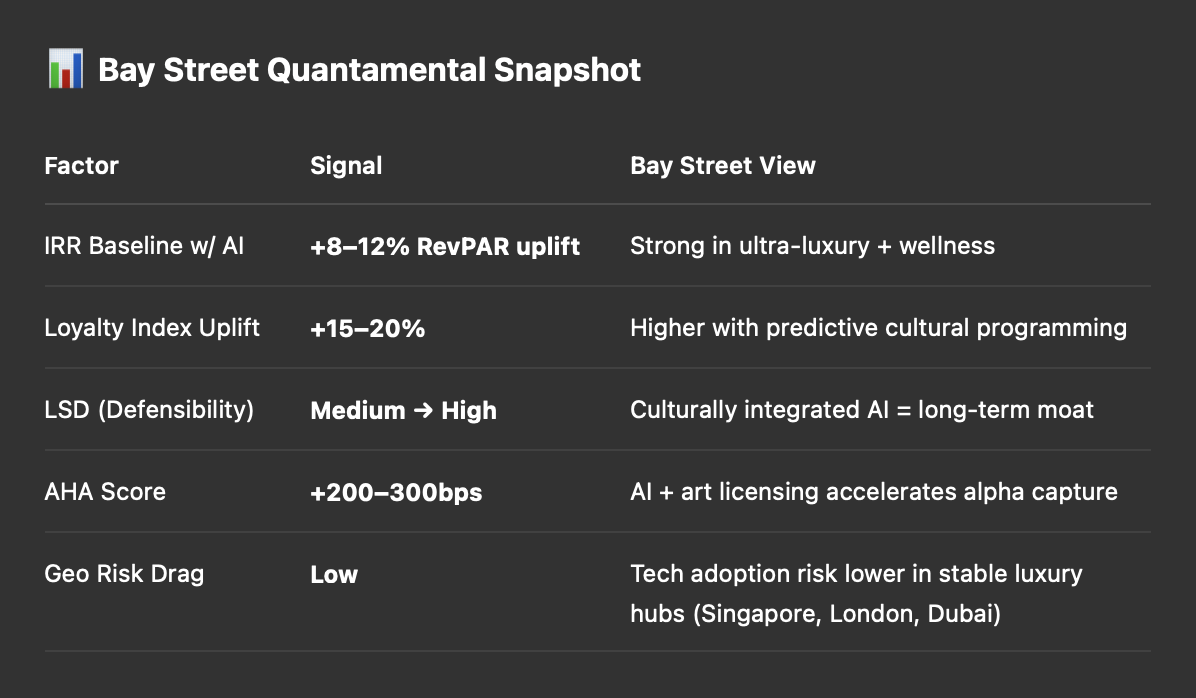Bay Street’s Phase 13 Regime Detection classifies AI integration as part of a “Predictive Luxury Regime” — where financial outperformance relies on AI’s ability to deliver personalized, scalable experiences that justify higher ADRs and brand premiums.
But these financial metrics only scratch the surface. Luxury yield defensibility now depends as much on cultural resonance as on operational efficiency.
AI personalization, without cultural integration, risks becoming a sterile tech feature. In recent meetings with art families in London, Dubai, and Hong Kong, one message was consistent:
“AI can guide you to an art piece, but only a story makes you stay.”
These families are exploring licensing their collections to AI-powered hospitality platforms to create what Bay Street calls “narrative-driven personalization.”
Imagine:
As Art Collecting Today points out:
“Collectors are no longer passive lenders; they want participation in the guest’s emotional journey.”
Bay Street’s AHA (Alpha Harvest Adjusted) scoring forecasts a 200–300bps IRR uplift for luxury hotels that combine AI personalization with licensed cultural programming.
Hotels integrating predictive wellness (e.g., pre-ordered favorite meals, hydrotherapy scheduling) are achieving double-digit RevPAG premiums. Ranong hot spring projects in Thailand — which Bay Street is actively monitoring — could benefit from similar AI-enabled personalization.
Branded residences provide long-term guest data streams that AI can leverage to predict lifestyle shifts — a key to defending yield in mid- to long-hold strategies.
Cultural families are increasingly open to credit-backed hospitality placements if operators can commit to AI-enhanced cultural programming. As one Basel-based collector told us:
“If the AI can ensure our works are placed before the right eyes, we’re funding the CapEx.”

Ziade is right: AI will transform hospitality. But AI alone is not the alpha — it’s AI fused with narrative that delivers long-term defensibility.
As Management of Art Galleries reminds us:
“The future of cultural venues belongs to those who can interpret, not just display.”
For Bay Street, the most investable AI-enabled hospitality plays will be those that turn predictive technology into cultural storytelling platforms — creating not just efficient stays, but unforgettable, loyalty-rich experiences.
...
